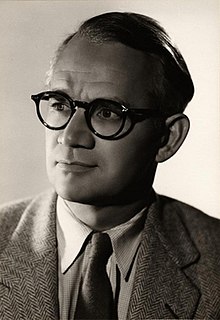A Quote by Noam Chomsky
There is a phrase in trade theory; it's called "kicking away the ladder." First you violate the rules - the market rules - and then by the time you succeed in developing, you kick away the ladders so others can't do it too, and you preach about "free trade."
Related Quotes
I`ve said this when I pass the trade promotion authority law, which allows us to get trade agreements. If we write the rules of the global economy, we will succeed in the 21st century. But we have to write those rules, we have to engage, and I think the president [Donald Trump] said Trans-Pacific Partnership is not the way to do it.
We are already well down the road toward a managed-trade regime. It would be far better to acknowledge that reality, and seek a set of reasonable rules, than to pretend that Ricardian trade is the norm and allow mercantilist states to overwhelm U.S. industry and ratchet down wages, in the name of free trade.
That means we get other countries to play by our rules. You add up all the countries that we have trade agreements with, we have a surplus with them. You add up the countries we do not have a trade agreement with, that`s where a massive trade deficit comes from. So our goal is to get free trade agreements, and that means we get other countries to play and live by our rules so we can level the playing field.
If you spend too much time learning the 'tricks' of the trade, you may not learn the trade. There are no shortcuts. If you're working on finding a short cut, the easy way, you're not working hard enough on the fundamentals. You may get away with it for a spell, but there is no substitute for the basics. And the first basic is good, old fashioned hard work.
We also exchange oil for software technology. Uruguay is one of the biggest producers of software. We are breaking with the neoliberal model. We do not believe in free trade. We believe in fair trade and exchange, not competition but cooperation. I'm not giving away oil for free. Just using oil, first to benefit our people, to relieve poverty.
To achieve long-term success over many financial market and economic cycles, observing a few rules is not enough. Too many things change too quickly in the investment world for that approach to succeed. It is necessary instead to understand the rationale behind the rules in order to appreciate why they work when they do and don't when they don't.
The American people want to make sure that the rules of the game are fair. And what that means is that if you look at surveys around Americans' attitudes on trade, the majority of the American people still support trade. But they're concerned about whether or not trade is fair, and whether we get the same access to other countries' markets that they have with us. Is there just a race to the bottom when it comes to wages, and so forth.



































